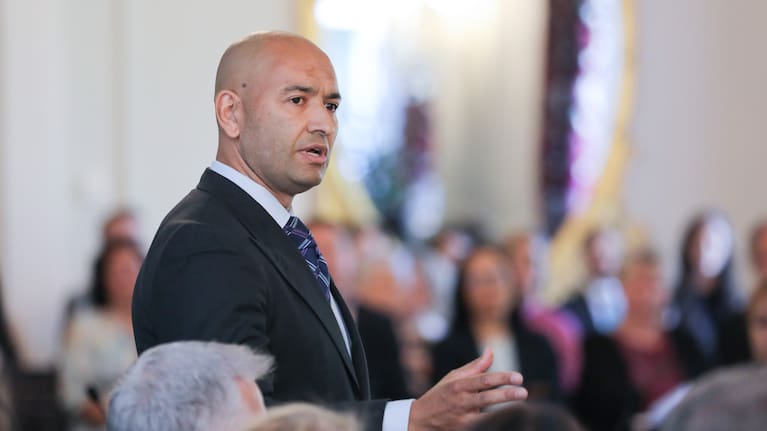Prime Minister Christopher Luxon has called the criticism surrounding the new government "unfair".
The news comes as protests, supported by Te Pāti Māori, show opposition to the new government, which has promised changes to Treaty relations and co-governance.
"I think it's pretty unfair to be honest. I think the reality is we've been in government for a week, we are going to get going and we are going to get things done for Māori and non-Maori, and that's what our focus is going to be.
"As I’ve said, we are a government which has been here for a week, we are here to deliver for New Zealanders, for all New Zealanders, that’s up to them to choose the language they want to use but I think it is entirely inappropriate."
He also said he has had "constructive sessions" with iwi leaders to "work together" in improving outcomes for Māori.
"It’s been really important to me to make sure we actually work together on improving outcomes for Maori, that’s been a lot of our focus.
Prime Minister Christopher Luxon has criticised the language used by Te Pāti Māori surrounding the organisation of protests across the country – labelling it as “entirely inappropriate”.
The protests, supported by Te Pāti Māori, are a show of opposition to the new government, which has promised changes to Treaty relations and co-governance.
He was asked about the term “genocide” and images of pistols being used in promotion of the protests.
“I’ve seen and read the language; I think it is entirely inappropriate,” said Luxon.
Speaking on the plan to prioritise English first in government agency names, Luxon said it is “simply to make sure every New Zealander can navigate their government”.
"We’re at a time where we have a lot of new New Zealanders in the country, we have elderly people, we have a lot of New Zealanders who communicate through English.
"When we have New Zealanders who don’t understand the difference between the polytechnic system, the transport system and the health system, that’s a challenge, and particularly when our public services have delivered very poorly and delivered poor outcomes."

Minister for Māori Development Tama Potaka also strongly disagreed with criticism that the Government is "anti-Maori".
Potaka told RNZ the Government would be even more committed to working alongside Māori but would be looking to do it in a way that was not in the form of a centralised bureaucracy.
"What we believe more in is decentralising and devolution and engaging with those leaders. Whānau Ora is a great example of that."
He believed the new Government would "lean in" more to a partnership with Māori rather than "a big bureaucratic solution to everything".
It was untrue the National-led Government would strip away the concept of partnership, he said.




















SHARE ME